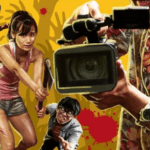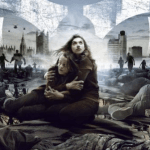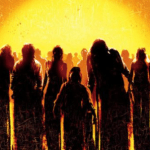Best Zombie Movies of the 21st Century
The zombie genre has shambled around for decades, but the 21st century injected it with a fresh shot of adrenaline. Faster zombies, sharper storytelling, and global perspectives transformed the undead from cult horror staples into mainstream icons. From gritty indie experiments to big-budget blockbusters, the new millennium delivered some of the most inventive, terrifying, and emotional zombie films ever made.
Why the 21st Century Revitalized Zombies
By the late 1990s, zombies had started to feel stale. The genre was coasting on Romero's legacy and low-budget splatter flicks. Then the 2000s changed everything:
- The Fast Zombie Revolution - Films like 28 Days Later (2002) and Zack Snyder's Dawn of the Dead remake (2004) introduced sprinting, rage-fueled infected that terrified a new generation.
- Blockbuster Appeal - Franchises like Resident Evil and World War Z proved zombies could dominate the box office.
- Global Voices - International hits like Train to Busan (2016) and [REC] (2007) brought fresh cultural perspectives and emotional depth.
- Genre-Bending From horror-comedies (Shaun of the Dead) to post-apocalyptic dramas (Cargo), the undead became a canvas for endless experimentation.
This creative explosion made the 21st century the most diverse and exciting era in zombie cinema.
A Timeline of 21st Century Zombie Highlights
Early 2000s: Reinvention
The decade kicked off with Danny Boyle's 28 Days Later (2002), a film that redefined what zombies could be. Its bleak vision of a deserted London and rage-infected hordes set the tone for modern zombie horror. Two years later, Zack Snyder's Dawn of the Dead (2004) remake proved that even Romero's classics could be reimagined with fresh intensity and breakneck pacing.
Mid-2000s: Mainstream Breakthrough
The mid-2000s saw zombies explode into mainstream pop culture. Shaun of the Dead (2004) struck the perfect balance between comedy and horror, while Paul W.S. Anderson's while Paul W.S. Anderson's Resident Evil films turned video game excitement into an action-packed horror spectacle.
Late 2000s: Global Expansion
As the decade closed, international filmmakers began reshaping the genre entirely, proving that zombie horror transcended cultural boundaries. Spain's [REC] (2007) mastered found-footage terror with claustrophobic intensity, trapping viewers inside a quarantined apartment building where every shaky camera movement amplified the dread. The film's raw, documentary-style approach made the infected feel unnervingly real, influencing countless imitators worldwide.
Meanwhile, Norway's Dead Snow (2009) served up Nazi zombies with a deliciously twisted splatter-comedy approach that balanced gruesome gore with dark humor. This unexpected gem demonstrated how zombie films could tackle historical horrors while delivering both genuine scares and laugh-out-loud moments. These international successes opened the floodgates for a wave of culturally diverse zombie cinema that would dominate the following decade.
2010s: Emotional Depth & Global Hits
The 2010s established zombies as a truly global phenomenon, with filmmakers from every continent contributing unique perspectives to the undead narrative. South Korea's Train to Busan (2016) became an instant classic by weaving together heart-pounding action with genuine heartbreak, using the confined space of a speeding train to explore class dynamics and sacrifice during the apocalypse. Australia's Cargo (2017) took a quieter, more emotionally driven approach to survival, focusing on a father's desperate journey to protect his infant daughter in the zombie-ravaged outback. Hollywood, meanwhile, went massive with World War Z (2013), depicting the apocalypse on an epic, globe-spanning scale that showcased zombie hordes overwhelming major world cities.
2020s: Fresh Perspectives
The new decade continues to push creative boundaries through indie films, streaming originals, and international productions that breathe fresh life into the genre. Netflix's #Alive (2020) explored social media-age isolation during the apocalypse, while The Girl with All the Gifts offered a unique perspective on zombie consciousness and evolution. Independent filmmakers continue experimenting with everything from zombie westerns to romantic comedies featuring the undead. Zombies remain as culturally relevant - and spine-chilling - as ever.
Why Fans Love Modern Zombie Movies
Today's undead offer something for every viewer:
- Pure Escapism - There's something deeply satisfying about watching survivors outsmart hordes of mindless creatures during stressful times.
- Emotional Catharsis - Films like Train to Busan and Cargo let audiences experience intense grief, sacrifice, and hope in a safe fictional space.
- Social Commentary - Zombie apocalypses provide the perfect backdrop for exploring class divisions, government failures, and human nature under pressure.
- Universal Thrills - Unlike other horror monsters tied to specific cultures, zombies translate across all languages and societies, making them the ultimate shared fear.
Final Thoughts
The 21st century didn't just resurrect the zombie genre; it completely transformed it. From the rage-fueled terror of 28 Days Later to the gut-wrenching humanity of Train to Busan, modern zombie films demonstrate that the undead are more versatile, frightening, and compelling than ever before.
The films above represent your essential guide to the best zombie movies of the 21st century. Whether you crave spine-tingling scares, dark comedy, or emotional storytelling, these movies prove that zombies aren't just surviving, they're dominating cinema.Whether you crave spine-tingling scares, dark comedy, or emotional storytelling, these movies prove that zombies aren't just surviving; they're taking over cinema.
Explore More Zombie Movie Lists
Best Zombie Movies of All Time (100+ List)





























